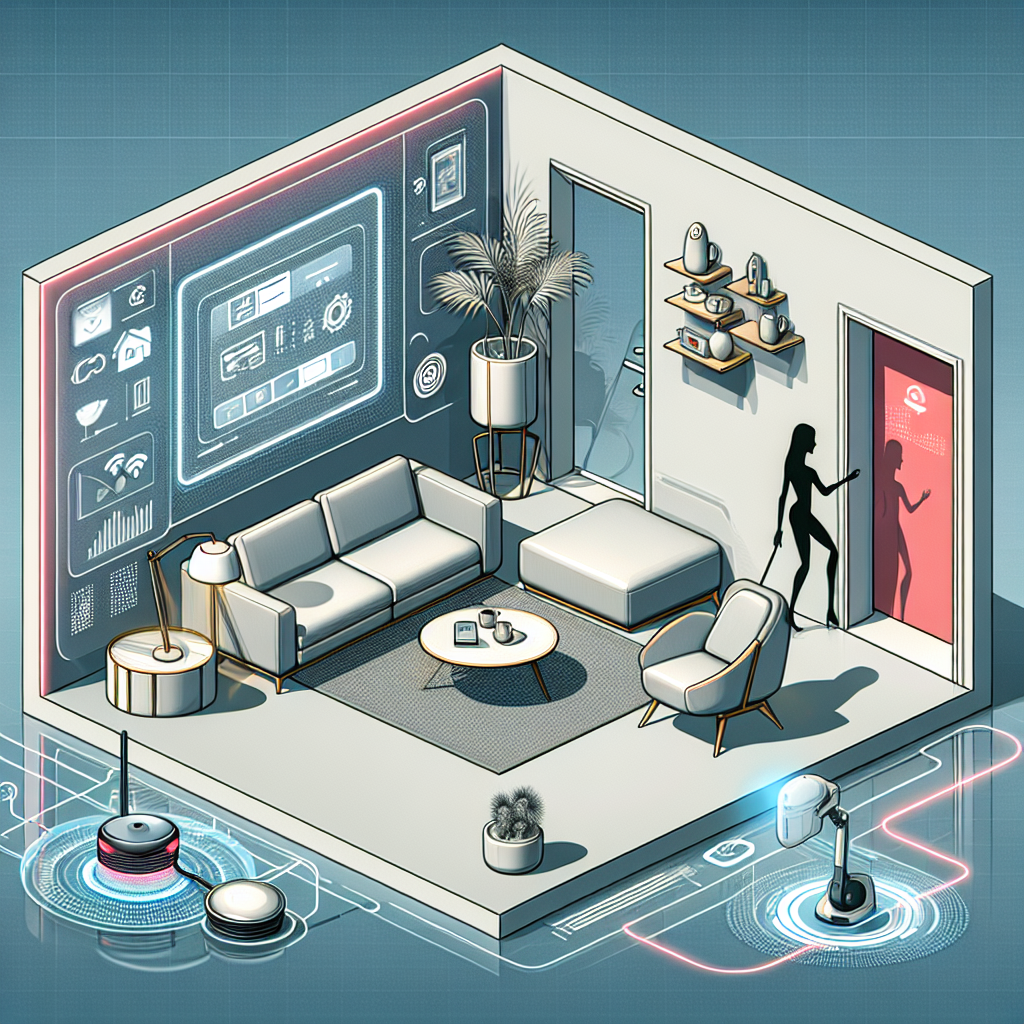Smart Homes of Tomorrow: The Latest in Home Automation
The concept of smart homes has rapidly transitioned from futuristic fantasies into a tangible reality, reshaping the way we interact with our living spaces. As technology continues to advance at an unprecedented rate, the latest developments in home automation promise to make our lives more convenient, connected, and energy-efficient than ever before.
1. Voice-Controlled Ecosystems
The advent of smart speakers and voice assistants, such as Amazon Alexa, Google Assistant, and Apple’s Siri, has paved the way for more integrated and intuitive smart home systems. These voice-controlled ecosystems are now capable of managing a comprehensive array of home functions, from controlling lighting and temperature to locking doors and setting alarms. The latest iterations feature improved natural language processing, allowing for more seamless and human-like interactions. Imagine walking into your home and simply uttering a command to adjust the ambiance or even relaying more complex instructions like "prepare the house for bedtime," which would dim the lights, lower the thermostat, and arm the security system.
2. AI and Machine Learning
Artificial intelligence (AI) and machine learning are at the heart of the next generation of smart homes. Modern home automation systems are increasingly capable of learning from user behaviors and preferences to offer personalized experiences. For instance, smart thermostats like the Nest Learning Thermostat can learn your schedule and temperature preferences, adjusting settings autonomously to optimize comfort and energy savings. Additionally, AI-driven security systems can differentiate between regular household activities and potential security threats, minimizing false alarms while enhancing safety.
3. Interconnectivity and Interoperability
One of the most significant hurdles in home automation has been the lack of compatibility between different smart devices. This is changing with the rise of more standardized protocols like Matter, an initiative led by major tech companies to ensure interoperability among smart home devices. Matter aims to create a unified communication protocol that allows different devices and ecosystems to work seamlessly together. This means you can mix and match smart bulbs, sensors, and appliances from various brands, ensuring a more cohesive and flexible smart home experience.
4. Advanced Security and Privacy Features
Privacy and security continue to be paramount concerns for smart home users. To address these issues, the latest smart home devices are incorporating advanced security features, such as end-to-end encryption and biometric authentication. Innovations like facial recognition doorbells and fingerprint-scanning locks offer enhanced security while ensuring ease of access for authorized users. Moreover, manufacturers are implementing more robust data protection measures to safeguard user information and mitigate the risks of cyberattacks.
5. Sustainable Living
Environmental sustainability is becoming a critical consideration in modern living, and smart home technology is playing a pivotal role in promoting energy-efficient practices. Smart appliances and systems now come equipped with energy monitoring capabilities, providing real-time insights into energy consumption. Smart lighting systems, like Philips Hue, can adjust brightness based on natural light availability, while smart irrigation systems optimize water usage for gardening. By integrating renewable energy sources, such as solar panels, with home automation systems, homeowners can further reduce their carbon footprint and utility bills.
6. Health and Wellness Integration
The focus on health and wellness is also becoming increasingly prevalent in smart home design. Advanced air quality monitors can detect allergens and pollutants, prompting air purifiers to activate automatically. Smart beds can track sleep patterns and adjust mattress firmness to ensure optimal rest. Kitchen appliances equipped with AI can suggest healthier recipes based on dietary preferences and ingredients on hand. These innovations are not only enhancing convenience but also contributing to a healthier lifestyle.
7. Immersive Entertainment
Entertainment has always been a cornerstone of home technology, and the smart homes of tomorrow are taking it to new heights. The integration of advanced audiovisual systems with home automation allows for immersive, personalized entertainment experiences. Smart TVs and speakers can synchronize to create a surround-sound effect, while intuitive controls enable users to create customized movie-watching or gaming environments. Furthermore, virtual reality (VR) and augmented reality (AR) are being incorporated into home entertainment setups, offering new ways to engage with media and games.
Conclusion
The smart homes of tomorrow promise to be more than just a collection of connected devices; they represent an evolution towards more intelligent, efficient, and responsive living environments. With rapid advancements in AI, interoperability, security, and sustainability, home automation is poised to become an integral part of everyday life. As we stand on the brink of this new era, the possibilities are limitless—ushering in a future where our homes are not just smart but truly intuitive companions in our daily lives.














Leave feedback about this
You must be logged in to post a comment.